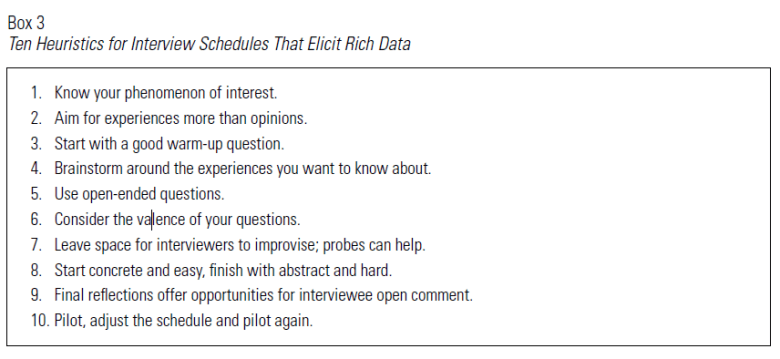Well that’s a lot of colons.
This is just a quick post but I found this paper really insightful and accessible and wanted to share it. In a nutshell, Bearman lays out some sensible practical tips for getting the most from semi-structured interviews.
She starts with a general outline of what qualitative data offers in a research project in terms of providing insights into human experiences and behaviour that raw stats struggle to provide.
For this reason, she effectively hammers home the point that the questions used in this kind of interviewing need to be framed in such a way as to draw on a participant’s personal experiences, ideally tied to specific points in time rather than more generalised opinions, as it is the former that can yield richer descriptive data.
She spends some time outlining the hows and whys of creating more open questions that spark discussion and invite the participant to answer more in their own voice.
She neatly summarises the key ideas here:

As someone right at the point of working on my semi-structured interview questions, this article was immensely valuable. (Thanks Dwayne Ripley for sharing)
You must be logged in to post a comment.